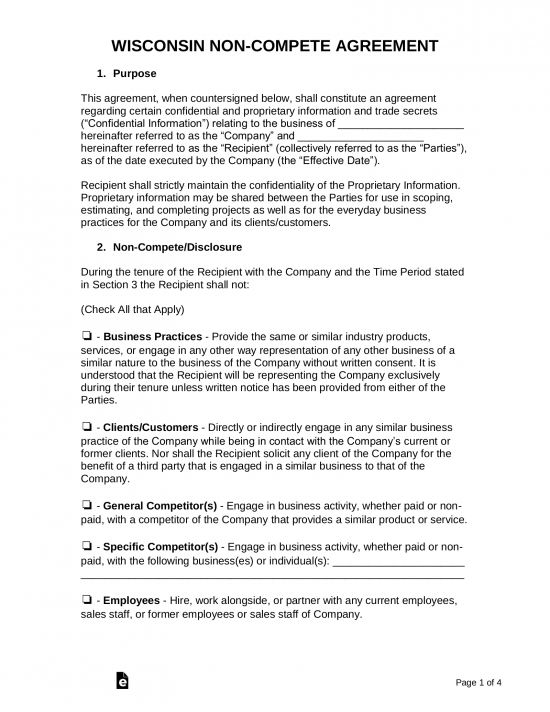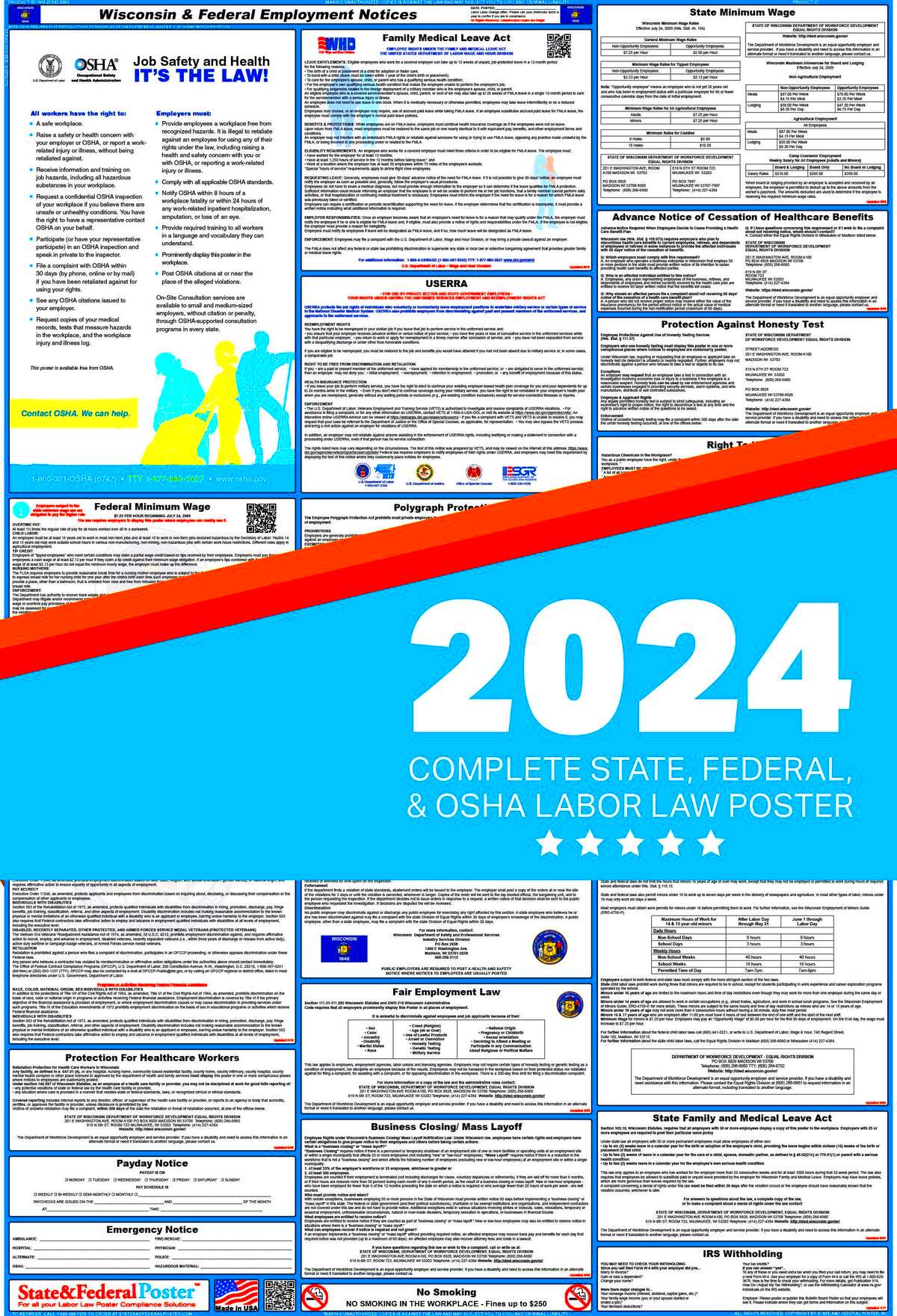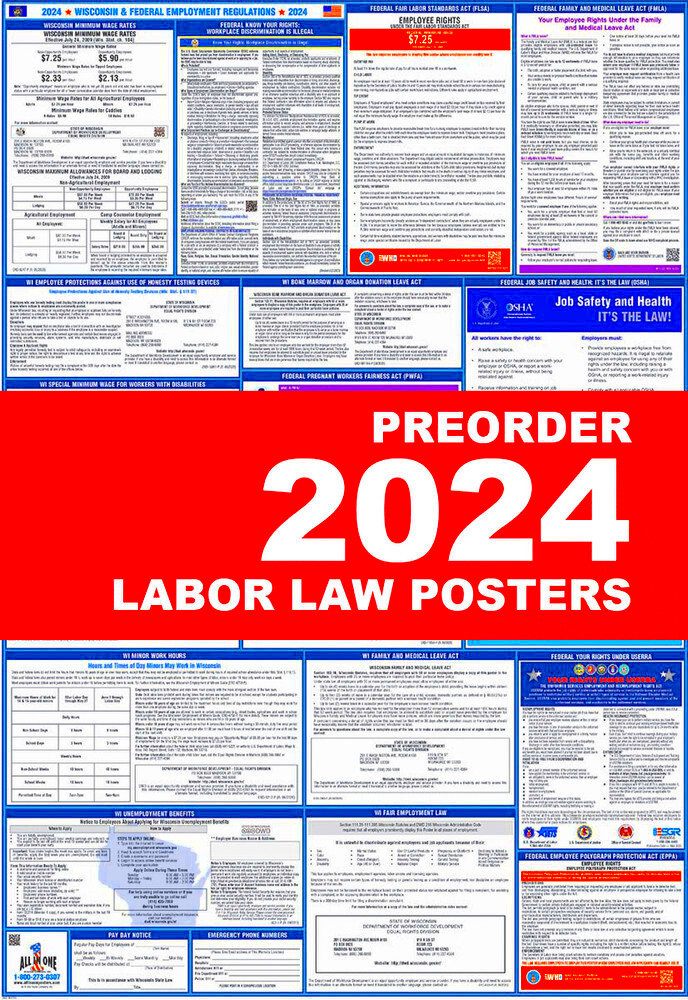Wisconsin Non-Compete Law for 2024: What You Need to Know
The non-compete laws in Wisconsin aim for equilibrium between the business protection needs of employers and the career advancement rights of employees. Such laws govern non-compete agreements enforceability which are contracts that prohibit an employee from working in any similar profession after leaving an organization. In 2024, whether you’re an employer writing up a contract or an employee going through one, it is important to digest how these statutes apply to your case.
Key Elements of Non-Compete Agreements

On the subject of these arrangements, getting aware of their validity and enforceability these is very essential. Here are some of them:
- Reasonable Time Period: The duration of the agreement should be reasonable, typically ranging from six months to two years.
- Geographic Scope: The area where the restrictions apply must be clearly defined and should relate to where the employee worked.
- Legitimate Business Interests: Employers must have legitimate interests to protect, such as trade secrets, client relationships, or specialized training.
- Consideration: There should be something of value exchanged, like a job offer or specialized training, in return for signing the agreement.
Duration and Geographic Scope Considerations

For employers as well as employees, it is important to understand the length of time and the area in which non-compete agreements apply. Here are a few things to take into account:
-
- Duration: Non-compete agreements should have a clear timeframe. Too long a duration may lead to challenges in enforceability. Common durations include:
| Duration | Common Usage |
|---|---|
| 6 months | Short-term contracts |
| 1 year | Standard agreements |
| 2 years | High-level executives |
-
- Geographic Scope: This refers to the area in which the restrictions apply. It should be reasonable and relate to the employer’s business. For example:
- A local business may restrict competition within the city.
- A larger company might enforce restrictions across several states.
- Geographic Scope: This refers to the area in which the restrictions apply. It should be reasonable and relate to the employer’s business. For example:
In conclusion, both elements must be reasonable to ensure the agreement is enforceable. If either is deemed too broad, a court may reject the entire agreement.
Enforceability of Non-Compete Clauses
The enforceability of non-compete clauses in Wisconsin is a crucial factor for both employers and employees. Not all non-compete agreements are created equal; their validity often depends on specific conditions. Understanding these conditions can help you navigate the legal landscape more effectively.
Wisconsin courts assess the enforceability of non-compete clauses based on several criteria:
-
-
- Reasonableness: The terms must be reasonable in duration, geographic scope, and the type of activities restricted. Courts typically favor clauses that are limited and specific.
- Legitimate Business Interests: Employers must demonstrate that the non-compete agreement protects legitimate business interests, like trade secrets or client relationships.
- Public Policy: Courts also consider whether enforcing the agreement would contradict public policy, such as preventing an employee from earning a livelihood.
-
To illustrate, a non-compete clause that restricts a former employee from working in their field for five years across the entire state might be viewed as excessive and, therefore, unenforceable. On the other hand, a six-month restriction within a specific city for a specialized role is more likely to be upheld.
Exceptions to Non-Compete Agreements
While non-compete agreements can be powerful tools for employers, there are exceptions that can make them unenforceable. Knowing these exceptions is essential for both parties. Here are some key points to consider:
-
-
- Employee’s Right to Work: Courts may invalidate non-compete agreements that unduly restrict an employee’s right to seek employment in their field.
- Minor Employees: Non-compete clauses are often unenforceable against employees who are considered minors or who lack the capacity to agree to such contracts.
- Unconscionability: If a non-compete agreement is overly one-sided or unfair to the employee, it may be deemed unconscionable and unenforceable.
-
For instance, if an employee is asked to sign a non-compete agreement after they have already started their job without any new benefits or training, a court might consider this agreement to be unenforceable.
Recent Changes in 2024 Regulations
As of 2024, Wisconsin has seen some notable changes in non-compete regulations that both employers and employees should be aware of. These changes aim to enhance fairness and clarity in the application of non-compete agreements.
Here are some of the significant updates:
-
-
- Shorter Duration Limits: New regulations may impose limits on how long non-compete agreements can last, typically reducing maximum durations from two years to one year.
- Increased Scrutiny: Courts will likely scrutinize non-compete clauses more rigorously, focusing on their necessity and fairness to employees.
- Mandatory Notice Requirements: Employers may now be required to provide employees with clearer disclosures about the implications of signing non-compete agreements before employment starts.
-
These changes are aimed at ensuring that non-compete agreements do not unduly restrict individuals’ abilities to find work while still allowing employers to protect their business interests. As the landscape evolves, staying informed about these regulations will be crucial for all parties involved.
Impact on Employees and Employers
The impact of non-compete agreements in Wisconsin affects both employees and employers significantly. For employers, these agreements serve as a protective measure against competition and the loss of sensitive information. However, for employees, they can pose challenges that may affect career advancement and job mobility.
Here are some key impacts to consider:
-
-
- For Employers:
- Non-compete agreements help safeguard trade secrets and client relationships, making them an essential tool for businesses.
- They can deter potential competitors from hiring away key employees, thereby maintaining a competitive edge.
- However, overly restrictive agreements may deter talented candidates from accepting job offers, fearing they might be trapped in a non-compete situation.
- For Employees:
- Non-compete clauses can limit job opportunities and restrict individuals from working in their field, especially if the agreement is broad or lengthy.
- Employees may feel pressured to accept unfavorable terms if they need a job urgently.
- Nonetheless, if the agreements are deemed unreasonable, employees can challenge them, but this often requires legal assistance.
- For Employers:
-
Overall, striking a balance is crucial. Employers need to protect their interests while ensuring that employees have the freedom to pursue their careers without excessive restrictions.
Frequently Asked Questions
Understanding non-compete laws can be tricky, and many people have questions. Here are some frequently asked questions about Wisconsin’s non-compete agreements:
-
-
- Are non-compete agreements enforceable in Wisconsin?Yes, but they must be reasonable in scope, duration, and geographic reach.
- What happens if I violate a non-compete agreement?Violating a non-compete agreement can lead to legal action, including potential lawsuits from your former employer.
- Can I negotiate the terms of a non-compete agreement?Yes, it’s always a good idea to negotiate terms before signing. Employers may be willing to adjust them.
- What should I do if I think my non-compete is unreasonable?Consult with a legal professional to review your agreement and explore your options for challenging it.
-
Conclusion on Non-Compete Laws in Wisconsin
In conclusion, non-compete laws in Wisconsin play a significant role in shaping the employment landscape for both employees and employers. Understanding these laws is crucial for anyone navigating job offers or drafting employment contracts. While non-compete agreements can help protect a business’s interests, they should not unduly restrict employees from pursuing their careers.
As we move through 2024, keeping an eye on regulatory changes and being informed about your rights is essential. If you’re an employer, consider crafting fair agreements that serve your business while also respecting your employees’ rights. And if you’re an employee, don’t hesitate to seek legal guidance to ensure that your non-compete agreement is fair and reasonable. The goal should always be to find a balance that works for both parties.


